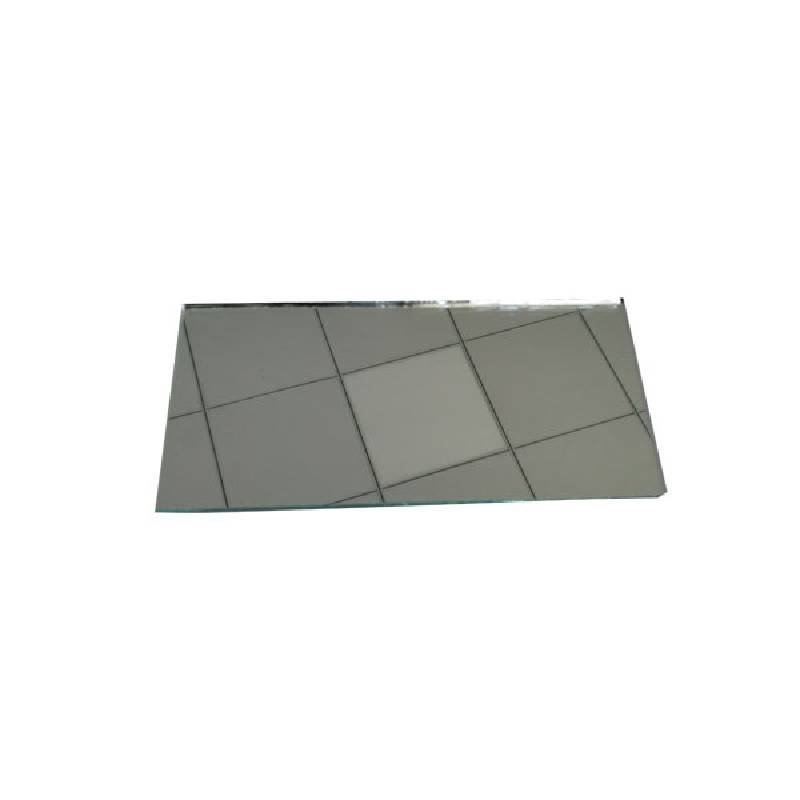Understanding Toughened Glass Types A Comprehensive Guide
Toughened glass, also known as tempered glass, is a type of safety glass that has been treated through controlled thermal or chemical processes to increase its strength compared to normal glass. It is widely used in various applications, including architecture, automotive, and household items, due to its remarkable durability and resistance to impact and thermal stress. This article will delve into the different types of toughened glass, highlighting their unique properties, benefits, and applications.
1. Float Glass
Float glass is the most basic form of glass, made by floating molten glass on top of molten tin. While it is not toughened initially, it can be treated to become toughened glass. Float glass is often used as a raw material for manufacturing toughened glass. By heating the float glass to a high temperature and then cooling it quickly, the glass undergoes a transformation, enhancing its strength and making it suitable for various applications.
2. Heat Soaked Glass
Heat soaked glass is a specific type of toughened glass that undergoes an additional treatment process to reduce the risk of spontaneous breakage. During production, the glass is subjected to a heating process where it is held at a high temperature for a specific duration. This process helps to identify and eliminate residual nickel sulfide inclusions, which can cause breakage later on. The result is a more reliable product, often used in high-risk applications like facades, balustrades, and in areas where safety is a top concern.
3. Laminated Toughened Glass
Laminated toughened glass consists of two or more layers of toughened glass bonded together with a transparent interlayer, usually made of polyvinyl butyral (PVB). This type of glass combines the benefits of both toughened and laminated glass, offering enhanced safety, sound insulation, and UV protection. If broken, the interlayer holds the shards in place, reducing the risk of injury. Laminated toughened glass is commonly used in car windshields, skylights, and building facades.
4. Low-E Coated Toughened Glass
toughened glass types
Low-E (low emissivity) coated toughened glass is treated with a special coating that minimizes the amount of infrared and UV radiation that passes through the glass while allowing visible light to enter. This type of glass helps improve energy efficiency by reflecting heat back into a building during winter and keeping it out during summer. Low-E coated toughened glass is an excellent choice for energy-efficient buildings and is often used in windows and facades.
5. Patterned Toughened Glass
Patterned toughened glass features various designs and textures that not only enhance aesthetics but also provide privacy. This type of glass is treated to become toughened, ensuring it retains its strength and durability. Patterned toughened glass is frequently used in shower doors, partitions, and decorative panels in homes and commercial buildings.
6. Insulated Toughened Glass
Insulated toughened glass is made up of two or more layers of toughened glass separated by a spacer, creating an air gap that enhances thermal insulation. This type of glass is particularly effective in reducing heat loss and improving the energy efficiency of buildings. It's commonly used in double-glazed windows and curtain walls, contributing to a more sustainable architecture.
Benefits of Toughened Glass
The various types of toughened glass come with an array of benefits. Primarily, it is significantly stronger than standard glass, able to resist impacts and thermal stress. This durability makes it particularly valuable in high-traffic environments where safety is paramount. Additionally, toughened glass shatters into small, blunt pieces rather than sharp shards, reducing the risk of injury. Its versatility allows it to be used in a myriad of applications, from residential buildings to commercial structures and even in vehicles.
Conclusion
In conclusion, toughened glass types offer a wide range of options tailored to meet specific needs across various sectors. Whether it’s the added safety of laminated glass, the energy efficiency of Low-E coated glass, or the aesthetic appeal of patterned glass, toughened glass solutions are indispensable in modern construction and design. As technology advances, the future of toughened glass continues to evolve, promising even greater innovations in safety and sustainability.
 Afrikaans
Afrikaans  Albanian
Albanian  Amharic
Amharic  Arabic
Arabic  Armenian
Armenian  Azerbaijani
Azerbaijani  Basque
Basque  Belarusian
Belarusian  Bengali
Bengali  Bosnian
Bosnian  Bulgarian
Bulgarian  Catalan
Catalan  Cebuano
Cebuano  Corsican
Corsican  Croatian
Croatian  Czech
Czech  Danish
Danish  Dutch
Dutch  English
English  Esperanto
Esperanto  Estonian
Estonian  Finnish
Finnish  French
French  Frisian
Frisian  Galician
Galician  Georgian
Georgian  German
German  Greek
Greek  Gujarati
Gujarati  Haitian Creole
Haitian Creole  hausa
hausa  hawaiian
hawaiian  Hebrew
Hebrew  Hindi
Hindi  Miao
Miao  Hungarian
Hungarian  Icelandic
Icelandic  igbo
igbo  Indonesian
Indonesian  irish
irish  Italian
Italian  Japanese
Japanese  Javanese
Javanese  Kannada
Kannada  kazakh
kazakh  Khmer
Khmer  Rwandese
Rwandese  Korean
Korean  Kurdish
Kurdish  Kyrgyz
Kyrgyz  Lao
Lao  Latin
Latin  Latvian
Latvian  Lithuanian
Lithuanian  Luxembourgish
Luxembourgish  Macedonian
Macedonian  Malgashi
Malgashi  Malay
Malay  Malayalam
Malayalam  Maltese
Maltese  Maori
Maori  Marathi
Marathi  Mongolian
Mongolian  Myanmar
Myanmar  Nepali
Nepali  Norwegian
Norwegian  Norwegian
Norwegian  Occitan
Occitan  Pashto
Pashto  Persian
Persian  Polish
Polish  Portuguese
Portuguese  Punjabi
Punjabi  Romanian
Romanian  Russian
Russian  Samoan
Samoan  Scottish Gaelic
Scottish Gaelic  Serbian
Serbian  Sesotho
Sesotho  Shona
Shona  Sindhi
Sindhi  Sinhala
Sinhala  Slovak
Slovak  Slovenian
Slovenian  Somali
Somali  Spanish
Spanish  Sundanese
Sundanese  Swahili
Swahili  Swedish
Swedish  Tagalog
Tagalog  Tajik
Tajik  Tamil
Tamil  Tatar
Tatar  Telugu
Telugu  Thai
Thai  Turkish
Turkish  Turkmen
Turkmen  Ukrainian
Ukrainian  Urdu
Urdu  Uighur
Uighur  Uzbek
Uzbek  Vietnamese
Vietnamese  Welsh
Welsh  Bantu
Bantu  Yiddish
Yiddish  Yoruba
Yoruba  Zulu
Zulu 

